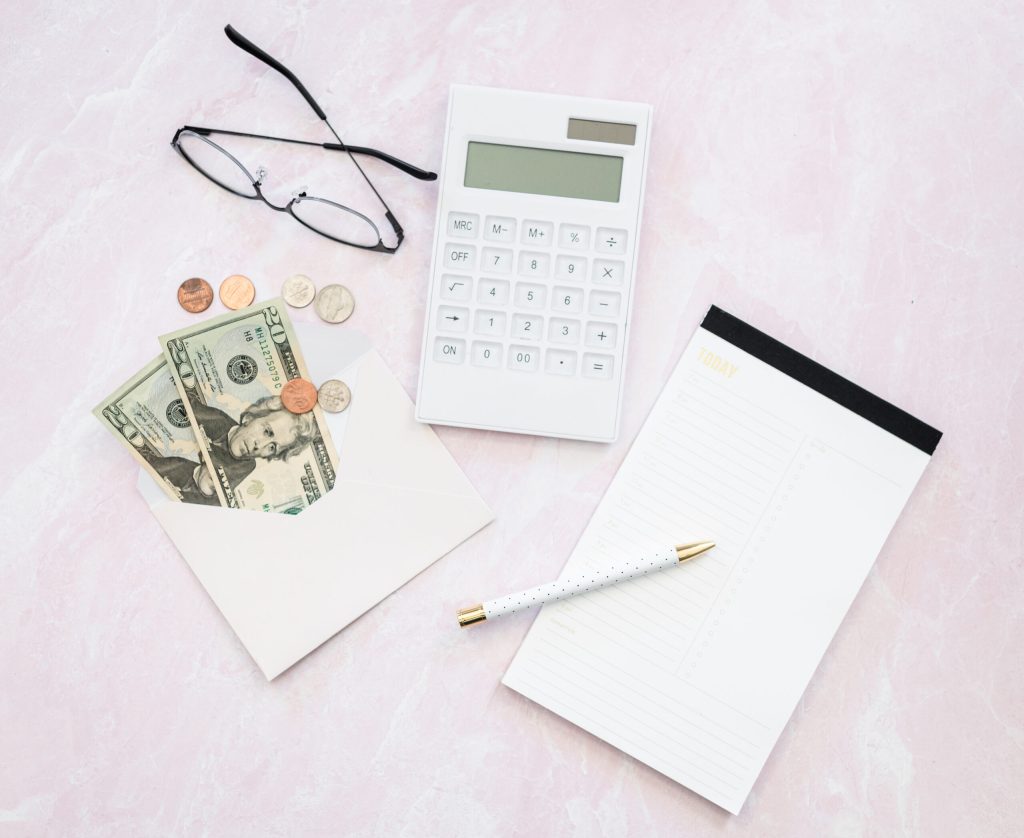Use This Tax Checklist to Help with Your Tax Prep

One of the best things you can do for yourself as a business owner is to plan ahead. Whether that looks like creating a contingency plan for your couples or ordering extra vases to have them in stock, a little extra thought never hurt anyone. And this is especially true when it comes to filing your taxes. So today, we are going to cut right to the chase and give you tips to help you plan ahead for tax prep—with a tax checklist to boot. Read on to get the wheels turning on this important business task.
Step 1: Find someone to prepare your taxes
The first thing you need to do when thinking about tax prep is decide who is going to prepare and file your taxes. It certainly can be you (armed with tax software like Turbotax), but it can also be your CPA or someone you hire from a tax firm (like H&R Block). Regardless of which route you take, don’t procrastinate in making the decision since hiring outside help gets harder the closer you get to the tax deadline.
Step 2: Schedule a meeting with your tax preparer
If you decide to hire someone to prepare your taxes, the next step is to schedule a pre-tax meeting with them. There are lots of documents and pieces of information you need to organize, and sitting down with your tax professional and getting this exact list with plenty of lead time will be the easiest way to get prepared. It’s also a great opportunity to have a more strategic conversation about how to prep for taxes. Here are a few questions you should think about asking:
- What documents, receipts, and reports do you need me to prepare?
- Is there anything I can do before the end of the year (or by a certain date) to reduce my tax liability?
- Should I take the standard deduction or itemize?
- Are there any tax credits from recently passed legislation that I can take advantage of?
- What common tax deductions am I missing?
- What is the best business structure for me to be from a tax perspective?
- How much should I anticipate owing? And how can I plan to pay for it?
Step 3: Get organized
This brings us to the step where all the work gets done. The major goal in this phase of tax prep is to organize your documentation of income, deductions, and credits now so you won’t have to scramble to do it later. WeddingPro Educator and CPA, Nadia Anderson, thinks of it this way, “I avoid the stress that drives many people to drink around this time of year as they get ready for “tax season”. I believe and promote the idea that tax preparation is a process, not an event. Therefore, I’m never racing toward a tax appointment or a filing deadline.”
The big task you have is organizing your receipts (if you haven’t been doing so already). CPA Amy Northard’s advice is, “If you plan to use an expense towards a tax credit or deduction, then you’ll need to have what the IRS calls ‘documentary evidence’ of that expense. In other words, keep those receipts. Each receipt needs to include the amount, date, place, and nature of the expense. If you don’t have a receipt, you can use evidence like a canceled check or credit card bill as long as it provides the same type of evidence of a business expense.”
Tax Prep Checklist
Ready to get started on preparing your taxes and love a good to-do list? With help from TurboTax and NerdWallet, we’ve put together a tax prep checklist to help get you started—just be sure to have a conversation with your CPA or tax preparer to make sure you have everything you need.
Complete your bookkeeping and run reports
- Categorize all transactions
- Reconcile all accounts
- Run a Profit and Loss report
- Run a Balance Sheet report
Collect, send, and organize documents
- Have your EIN and Social Security numbers
- Have your bank account information (account and routing numbers)
- Have a copy of last year’s returns for reference
- Request W9s from contractors you paid more than $600
- Send 1099s to contractors you paid more than $600
- Any W2s or 1099s for work you were hired by others to do
- Documentation of any estimated taxes you paid
- Documentation for any contributions you made to retirement accounts
- Documentation of any tax credits you received
Organize your receipts by category
- Charitable contributions
- Medical bills
- Traveling and transportation receipts
- Weight-loss program bills
- Smoking cessation program bills
- Prescription receipts
- Sales tax receipts
- Mileage logs
- Gas receipts
- Student loan bills
- Tuition bills
- Mortgage bills or rent receipts
- Childcare bills
- Office expenses
- Self-employment insurance receipts
- Utility bills
Want to make sure you’ve closed out the year before you dive into all this? Here is what you need to know about year-end accounting as well as more tax advice from Amy and Nadia. Happy tax season!
Photo Credit: Colorjoystock.com
Let's grow your business together!
Start advertising on The Knot and WeddingWire, the top two wedding planning platforms.


